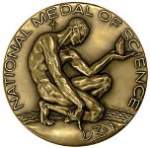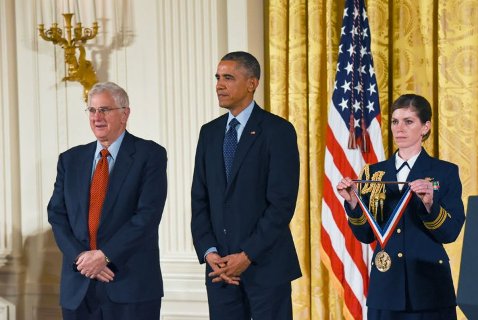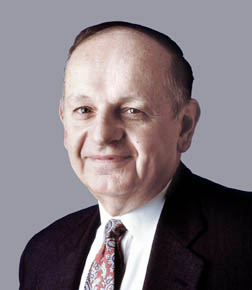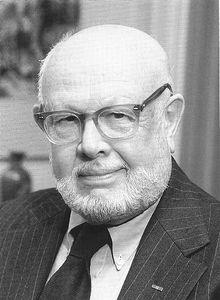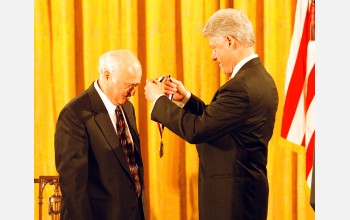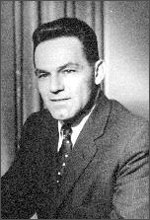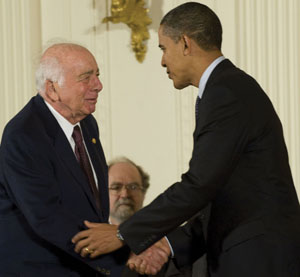Willis Lamb National Medal of Science Awarded In 2000
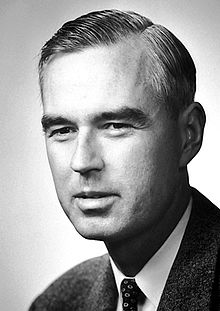
Willis Lamb
Award Name : National Medal of Science
Year of Award : 2000
Award for : Physics
Location : Los Angeles, California, United States
Willis Lamb was an American physicist who won the Nobel Prize in Physics in 1955 "for his discoveries concerning the fine structure of the hydrogen spectrum." The Nobel Committee that year awarded half the prize to Lamb and the other half to Polykarp Kusch, who won "for his precision determination of the magnetic moment of the electron." Lamb was able to determine precisely a surprising shift in electron energies in a hydrogen atom. Lamb was a professor at the University of Arizona College of Optical Sciences. Willis Lamb was born on July 12, 1913 in Los Angeles, California. In 1930 he entered the University of California at Berkeley and received a B.S. (Chemistry) in 1934. His graduate work in theoretical physics at the same university led to the Ph.D. degree in 1938. Lamb was the Wykeham Professor of Physics at the University of Oxford from 1956 to 1962, and also taught at Yale, Columbia, Stanford and the University of Arizona. He was elected a Fellow of the American Academy of Arts and Sciences in 1963. He received the National Medal of Science, the nation's highest scientific honor, in 2000 and retired as professor of physics and optical sciences three years later. He died on May 15, 2008 in Tucson, Arizona, United States.
